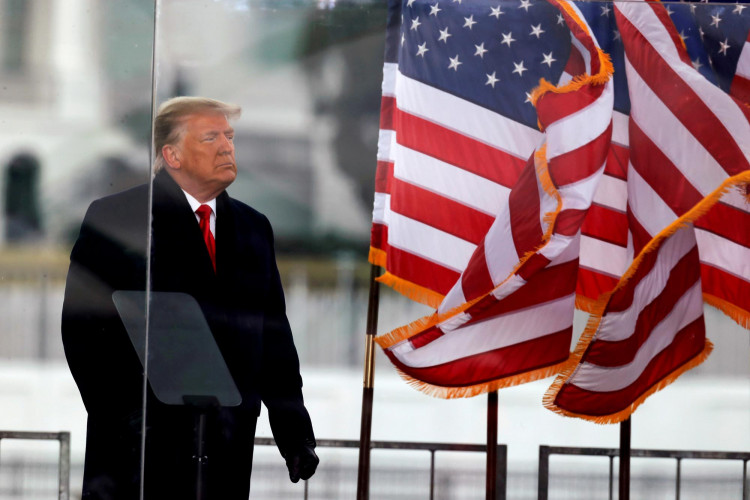Former President Donald Trump, campaigning for a second term, has embarked on a strategic effort to attract young Black voters by teaming up with prominent rappers. This unconventional approach was highlighted during an outreach event at a Detroit church, where Trump was joined by several notable Black Republicans, including rapper Casada Sorrell, known as Sada Baby.
During the event, Sorrell expressed his surprise and appreciation for Trump's direct engagement. "He might be the first person to make me vote," Sorrell said, according to NBC News. "Him reaching out showed me, like, some type of effort that another candidate hadn't shown ever. I'm trying to act like it doesn't mean too much, but it means a lot." Sorrell noted that Trump could have chosen a more famous Detroit rapper, like Eminem, but instead chose to connect with him.
This move is part of a broader strategy by Trump to engage young voters of color by involving both well-known and local artists. Polling data indicates a generational split among Black voters, with younger members showing more openness to Trump's message. Another Detroit-based rapper, Icewear Vezzo, also attended the event and encouraged his followers to vote for Trump. Vezzo faced backlash for posting a photo of himself shaking hands with Trump on Instagram but defended his stance, saying, "Why can't we respectfully disagree no more? You know what's built great companies and great civilizations? They all went and got a team of people who think differently from them."
Trump's engagement with the rap community has included bringing Brooklyn rappers Sheff G and Sleepy Hallow onstage during a rally in the Bronx. Both rappers are influential figures in New York's drill music scene, although they were recently charged in a 140-count indictment related to gang activities. Despite the controversy, Sheff G praised Trump, saying, "Trump is going to shout the wins for all of us," while Sleepy Hallow simply echoed Trump's campaign slogan, "Make America Great Again."
A spokesperson for the Trump campaign described the engagement with the rap community as "completely organic," highlighting that the artists resonate with Trump's dissatisfaction with President Joe Biden's immigration and economic policies. "While Joe Biden gaslights Black voters with nonsense ads, empty promises, and unrelatable messaging, President Trump is showing up in these communities and listening to the leaders within them, including rappers, pastors, and business leaders," said Janiyah Thomas, the Trump campaign's Black media director.
The Biden campaign has taken a different approach, focusing on traditional Black media outlets and community engagement. Vice President Kamala Harris recently participated in a gun violence prevention event hosted by Atlanta-based rapper Quavo. However, the Biden campaign has not actively sought endorsements from rappers, instead prioritizing presence at events centered on Black music and culture.
Trump's outreach to the rap community builds on his reputation among some rappers who praised his criminal justice reforms. Lil Wayne and Kodak Black became vocal supporters after Trump included them in his list of pardons and commutations at the end of his term. The First Step Act, which Trump signed into law in 2018, has also been praised for its sentencing reforms for nonviolent offenders. Rapper Sexyy Red cited this legislation as a reason for her support, saying, "We need him back in office."
The approach has its critics, with some downplaying the significance of rapper endorsements. During the 2020 campaign, Trump boasted endorsements from artists like Kanye West and Lil Pump but did not see a substantial increase in support from Black voters compared to 2016. However, the strategy could still impact the election if it garners even a slight increase in support among Black voters.
Mansa King, a sociologist who studies racial inequality, noted that rappers appeal to a diverse coalition of younger voters, but translating enthusiasm into actual votes can be challenging. "Young people can be very excited about someone but not translate that into what's needed to actually affect electoral behavior at the most important levels," King said. However, he acknowledged that even a small shift in voter support could be significant in a close election.






